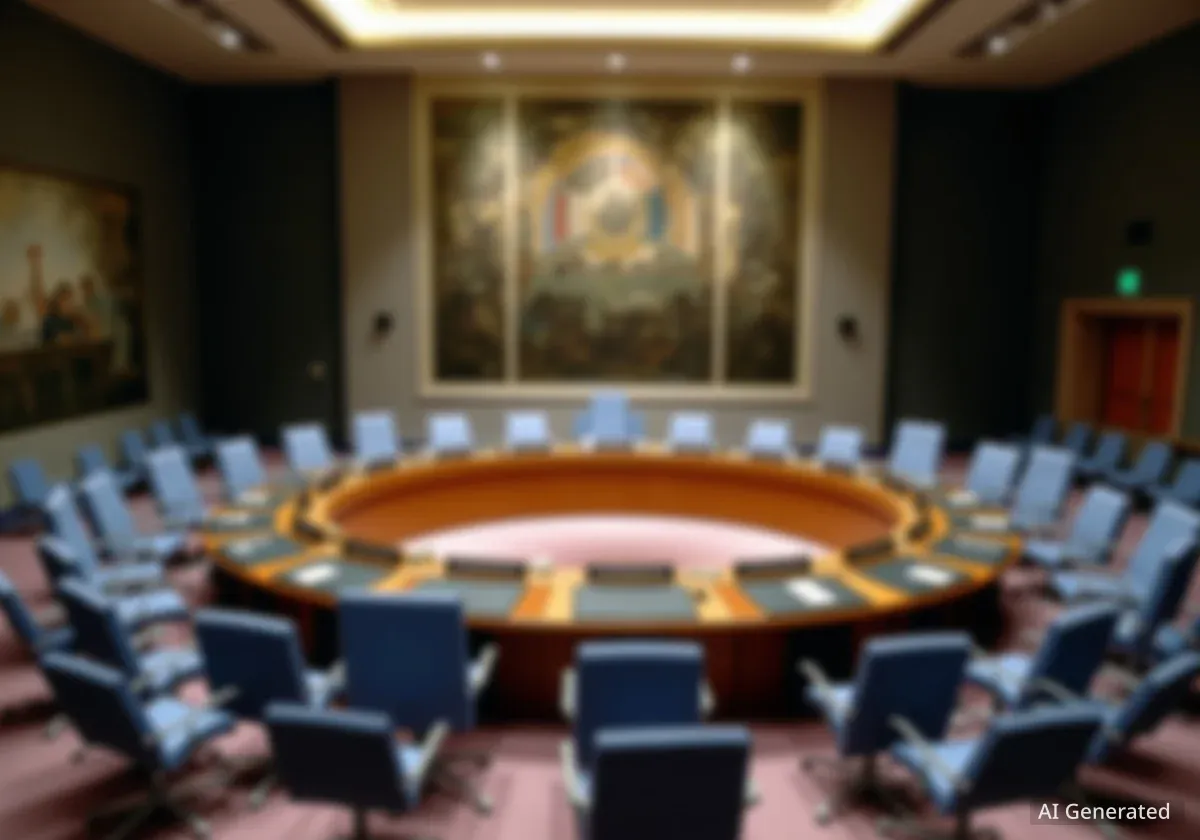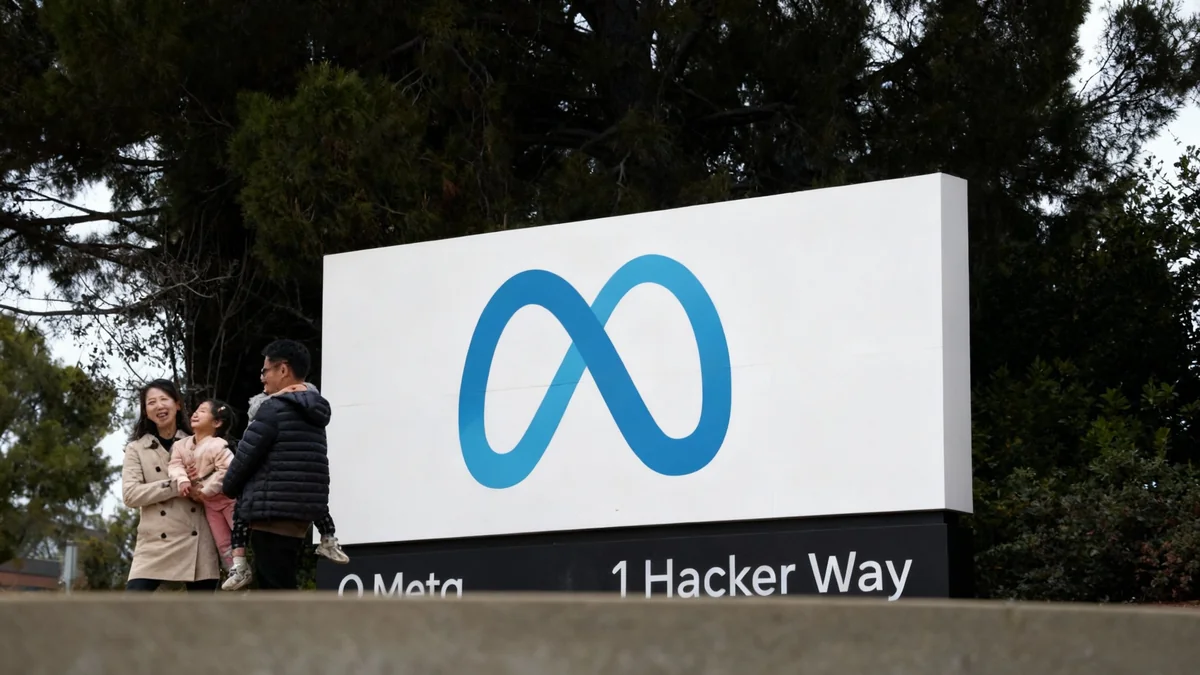The United Nations Security Council has rejected a resolution proposed by China and Russia aimed at extending sanctions relief for Iran. The vote, held on September 26, 2025, ensures that a "snapback" mechanism will proceed, leading to the reimposition of comprehensive UN sanctions against Tehran this weekend following the collapse of the Joint Comprehensive Plan of Action (JCPOA).
Key Takeaways
- A resolution by China and Russia to extend sanctions relief for Iran for six months was voted down by the UN Security Council.
- The failure of the resolution triggers the "snapback" provision, which will restore all previously suspended UN sanctions on Iran.
- This development follows the formal termination of the Joint Comprehensive Plan of Action (JCPOA), the 2015 nuclear deal.
- The vote highlights significant divisions among the permanent members of the Security Council regarding international policy toward Iran.
Details of the Security Council Vote
On Friday, the 15-member UN Security Council met to decide on a critical resolution concerning Iran. The measure, put forward by permanent members China and Russia, sought to grant a temporary six-month extension to the sanctions relief that Iran had received under the now-defunct 2015 nuclear agreement.
The proposal failed to secure the necessary votes to pass, marking a pivotal moment in the diplomatic standoff over Iran's nuclear program. The outcome was not unexpected, given the long-standing disagreements among world powers, but it formalizes the end of the JCPOA's framework for sanctions relief.
The vote effectively paves the way for the automatic reimposition of international sanctions. This process is governed by a specific provision within the original nuclear deal designed to handle significant non-compliance.
What Was the JCPOA?
The Joint Comprehensive Plan of Action was a landmark agreement reached in 2015 between Iran and the P5+1 group of world powers (China, France, Russia, the United Kingdom, the United States, plus Germany) and the European Union. Its primary goal was to place verifiable limits on Iran's nuclear program to ensure it remained peaceful, in exchange for lifting economic sanctions.
The 'Snapback' Mechanism Explained
The term "snapback" refers to a provision embedded within the original JCPOA agreement. This mechanism was designed as a fail-safe to allow any of the original participant states to unilaterally trigger the reimposition of all pre-2015 UN sanctions against Iran if Tehran was found to be in significant non-compliance with its commitments.
The process was intended to be rapid and veto-proof. Once a participant state formally notifies the Security Council of non-compliance, a 30-day countdown begins. During this period, the Security Council must pass a new resolution to continue the sanctions relief. If such a resolution is not passed, or if it is vetoed, the old sanctions automatically "snap back" into place.
A Veto-Proof Process
The snapback mechanism was uniquely structured to bypass the potential for a veto from countries like Russia or China, who might otherwise block efforts to reimpose sanctions on Iran. By requiring a positive vote to continue relief, rather than a vote to impose sanctions, the process could be triggered by a single party to the original agreement.
End of an Era for the Iran Nuclear Deal
The reimposition of sanctions marks the definitive end of the JCPOA, an agreement that has been under severe strain for years. The deal began to unravel following the United States' withdrawal in 2018 and its subsequent reimposition of unilateral sanctions. In response, Iran gradually increased its nuclear activities beyond the limits set by the accord.
Despite efforts by European signatories, China, and Russia to preserve the agreement, the combination of U.S. sanctions and Iran's escalating nuclear work ultimately rendered it unsustainable. The termination of the JCPOA and the subsequent snapback of UN sanctions return the international community to a pre-2015 posture regarding Iran's nuclear ambitions.
"The failure to extend sanctions relief effectively closes the final chapter on the JCPOA. We are now entering a new and more uncertain phase of diplomacy and security in the region," commented one UN diplomat who spoke on the condition of anonymity.
Global Implications and Next Steps
The reimposition of UN sanctions will have far-reaching consequences. Economically, it will further isolate Iran from the global financial system, impacting its oil exports and access to international trade. This could exacerbate economic hardship within the country and potentially lead to greater political instability.
Geopolitically, the event underscores the deep fractures within the Security Council's permanent members. The alignment of China and Russia against the position of Western powers on this issue signals continued friction on major international security matters.
Key Areas of Impact
- Nuclear Non-Proliferation: With the JCPOA dismantled, international oversight of Iran's nuclear program, primarily through the International Atomic Energy Agency (IAEA), becomes more challenging and critical.
- Regional Stability: Increased pressure on Iran could escalate tensions across the Middle East, affecting security dynamics in the Strait of Hormuz, Yemen, Syria, and Lebanon.
- Diplomatic Relations: The path forward for diplomacy is unclear. Future negotiations will likely require a completely new framework, as the trust and structures built around the JCPOA have been eroded.
As the sanctions come back into force this weekend, the international community will be watching closely for Iran's response. The focus now shifts to preventing further nuclear escalation and mitigating the risk of a wider regional conflict.





